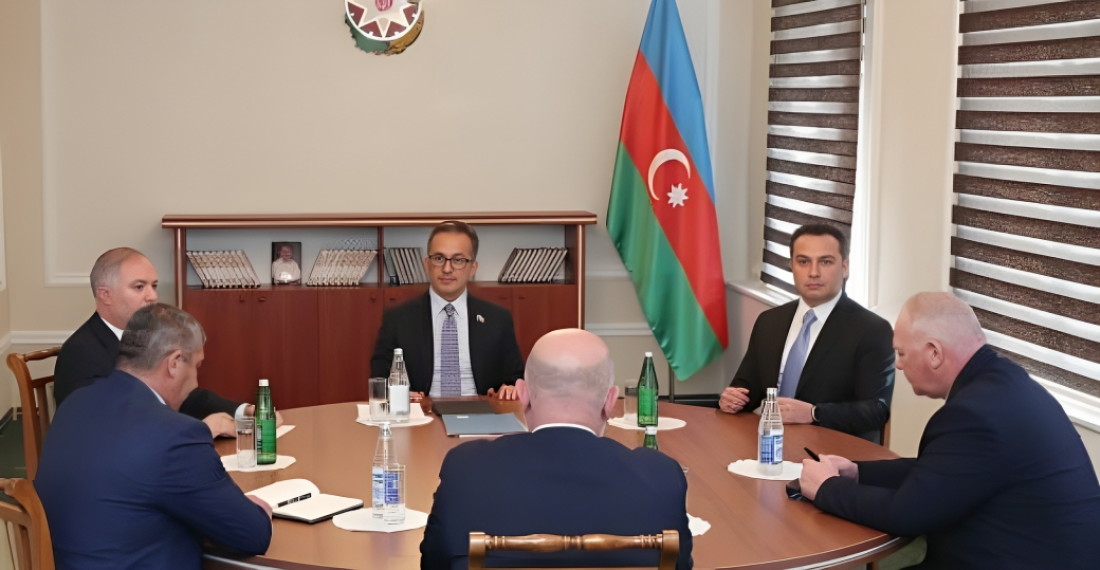Talks between representatives of Baku and Stepanakert on the future of Karabakh and its Armenian community were held in the town of Yevlakh on Thursday 21 September 2023.
______________________________
Updated with correct names of the leaders of the delegation of the Karabakh Armenians
Representatives of the Armenian community of Nagorno-Karabakh arrived in the Azerbaijani town of Yavlakh for discussions with Baku officials on the future of the territory and its Armenian population. According to Armenpress news agency the Armenian group is led by Davit Melkumyan, head of the "Artsakh Democratic Party" faction in the parliament of the self-declared Nagorno-Karabakh Republic parliament, and Sergey Martirosyan, deputy secretary of the Security Council. The group travelled by car in a convoy escorted by Azerbaijani police and Russian forces. For the Baku side, the talks will be led by Ramin Mammadov, a member of parliament who earlier this year was designated by the Azerbaijan government as the lead person for contacts with the Karabakh Armenians.
The talks are expected to start at 13.00 local time (0900 GMT).
______________________
A decisive meeting that will define the future of Nagorno-Karabakh, and in many ways of the South Caucasus, is taking place in the Northern Azerbaijani town of Yevlakh this morning. Representatives of the Baku government, and of the Armenian community of Nagorno-Karabakh are meeting, with the facilitation of the Russian military, to put into effect the agreement reached yesterday after a twenty-four-hour Azerbaijani military operation that left hundreds of casualties on both sides.
Speaking in a nationwide televised broadcast on Wednesday (20 September), Azerbaijani President Ilham Aliyev said:
"During a meeting of representatives of the Karabakh community with my representative in Yevlakh, we will convey to them our visions of future coexistence. All their rights will be guaranteed: educational rights, cultural rights, religious rights, and municipal electoral rights because Azerbaijan is a free society. Azerbaijan is a multi-ethnic, multi-confessional state. It is our great asset. Representatives of every nationality living in Azerbaijan can see this. There is no need to explain that. It is our way of life. There has never been and will never be discrimination on religious and ethnic grounds in Azerbaijan..."
Amongst the Armenian population of Karabakh the mood is somber. Thousands are gathered at Stepanakert airport hoping to be taken out of the territory, and amongst those intending to remain there is a sense of apprehension about the future. Yevlakh may be about to carve its name in history but it is not yet clear for what reason.







